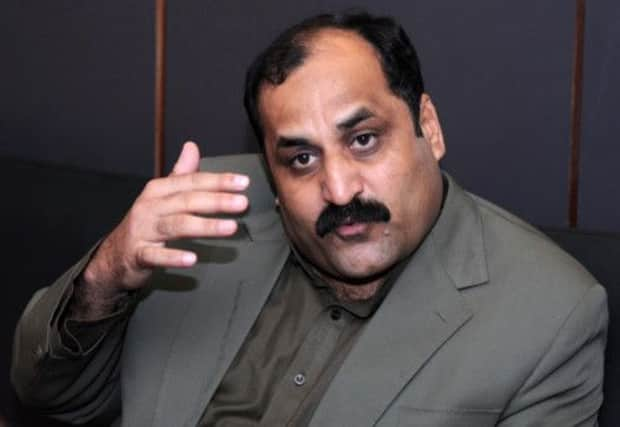Pakistan: Polling day looms for historic election


SEE ALSO:
However, politics remains a dangerous business in this country of 177 million people.
One candidate, Bashir Jan had been shot twice even before elections were called. Now, with polling day looming and the campaign at a crucial stage, the head of one of Karachi’s biggest parties has locked himself in his home, rallying supporters by telephone from an armchair.
Advertisement
Hide AdAdvertisement
Hide AdAs a wave of political violence threatens to undermine hopes of a free and fair election, it has become too dangerous for Mr Jan to walk the streets.
On Friday, one of the candidates from his Awami National Party was assassinated by gunmen on motorbikes. They also killed Sadiq Zaman Khattak’s four-year-old son.
“It was so bad. Just a young boy killed. This is the mindset of the people we are up against,” said Mr Jan, shaking his head, from the crowded room that serves as a party office.
It wasn’t supposed to be like this. Despite Mr Musharraf’s recent return to Pakistan after four years in self-imposed exile, and his subsequent arrest for allegedly overstepping his powers by ordering the detention of judges during his tenure, most people had hoped for a peaceful election process, in a country which has been blighted by military coups and political instability since its birth in 1947.
The Pakistan Taleban is doing its best to prevent progress. It has claimed responsibility for a string of attacks, mostly in Karachi and in the north-west and has let it be known that it will target anyone it deems un-Islamic. Yesterday, two attacks killed 15 people in the north-west town of Hangu and in the district of Dir, taking the election death toll past 100.
In Karachi, Pakistan’s biggest city which sprawls around its port, the violence is set against a never-ending series of gangland killings and turf wars. So far there have been 12 bomb attacks aimed at party workers or offices. Some 35 people have been killed and dozens more injured.
Mr Jan had already survived one close call before retreating behind the barriers and armed guards of his home, which also serves as party headquarters. Thirteen people were killed last month when a rickshaw crammed with explosives was detonated outside party offices.
The attacks, he said, showed which parties were tackling the Taleban, and which had gone soft on terrorism to carry on campaigning, such Imran Khan’s Pakistan Tehrik-e-Insaf and the PML-N of front-runner Nawaz Sharif.
Advertisement
Hide AdAdvertisement
Hide AdVoters had a simple choice to make, said Mr Jan. “There are two mindsets at work. Pakistan has to decide if it wants to be a secular, liberal nation, or a nation where girls can’t go to school and women can’t move around as much. In this fight we are on the front-line.”
Fears of a bloody climax have grown in recent days with leaflets apparently printed by the Pakistan Taleban appearing outside mosques. They urge voters to stay away from the polls and to avoid “un-Islamic elections” and make clear that anyone failing to take heed risks being killed.
One rails against letting religious minorities take part in the election, and says the votes of Islamic scholars should carry more weight.
Another singles out three, secular parties. It describes the ANP, the Muttahida Qaumi Movement (MQM) and the Pakistan People’s Party – who were all members of the governing coalition – as “hypocrites”, taking cash from America in return for the “blood of Muslims”.
The MQM, which controls Karachi, has also been attacked. At Nine Zero, a heavily guarded neighbourhood which serves as its headquarters, security officials search visitors even as children play cricket in the street.
In his office, Faisal Sabzwari, one of its candidates, admitted he had begun wearing a bullet-proof vest beneath his traditional, loose shalwaar kameez.
He said the Taleban were not just intent on killing its enemies, now it was trying to interfere with the political process.
“It is pre-poll rigging against us,” he said. “If the Taleban just wanted to kill us, they would have chosen election time. They could have killed us in large numbers.
“This way of attacking has a political mind behind. There’s a method to the madness.”